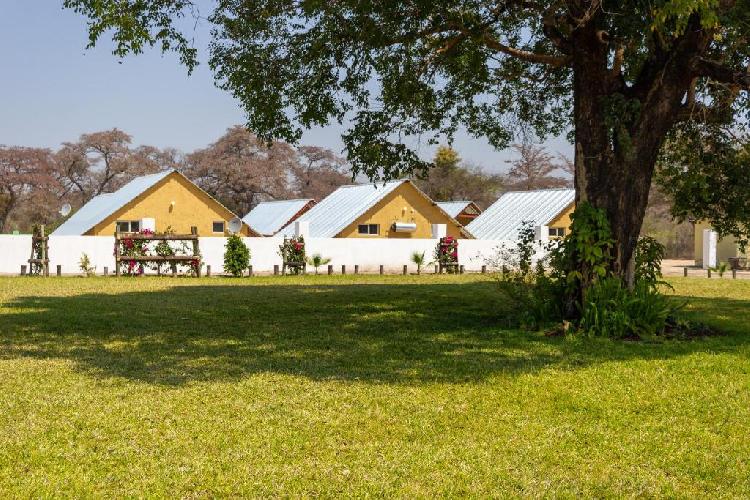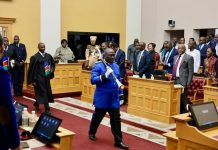Africa-Press – Namibia. THE Riverside Lodge, strategically located on the banks of the Zambezi River near Katima Mulilo, sees a silver lining for the troubled tourism industry.
According to lodge founder Frans Kwala, this is because innovative ways are being created to address new and old challenges facing the Covid-dented industry.
“This gives hope for Namibians to appreciate the beauty that Namibia has to offer to its own people,” said Kwala recently.
The lodge is designed to ensure guests take in magnificent river views from every corner while enjoying the peaceful ambience surrounding the facility.
Kwala said Namibia Wildlife Resorts (NWR) and the Namibia Tourism Board have been working with the Ministry of Environment, Forestry and Tourism on strategies to find solutions to problems in the tourism industry, giving them hope.
“They have done some amazing community work to have a lasting positive impact on the local economy, mainly through education and food security programmes.
“A good example that Namibia could emulate is the ‘Year of Return’, Ghana’s 2019 initiative to attract foreign visitors, which proved to be a success,” Kwala said.
That year alone, Ghana experienced a 45% surge in visitors compared to 2018 and, as claimed by their minister of tourism, Barbara Oteng Gyasi, the set plan had injected approximately US$1,9 billion (N$30 billion) into the economy.
In line with this, from the outset of 2020, Namibia’s travel industry anticipated even bigger growth. The negative impact has been significant, but the pandemic has also provided entrepreneurs an opportunity to think creatively and find solutions to some of the obstacles, said Kwala.
A great example, ‘Encounter Ghana’, is creating an innovative technology solution for the tourism sector to improve the utilisation of advanced technology in tourism.
The impact of the pandemic on the tourism industry cannot be overlooked, Kwala said, adding that the UN World Tourism Organisation has reported that international arrivals were down 74% worldwide in 2020 and that up to 100 million jobs were put at risk.
Since the outbreak, governments have been forced to splurge large amounts of funds into the health sector, leaving other strategic sectors to fall short in the budget.
Funds allocated to the sector that contributes the most towards the gross domestic product of Namibia (tourism and mining), have been cut and diverted to the Covid relief plan.
“Another area of concern is the increased cost of travelling, such as the implemented system that requires all incoming tourists to carry out a Covid-19 test at a fee ranging from N$750-N$1,500,” he said.
This has discouraged a few individuals and is a current concern as many lodges and guest houses accumulated debts in taxes and levies due to lack of business activity.
The bills skyrocketed and lack of income resulted in many owners facing bankruptcy and the fear of having to dispose of their property. The first six months of the outbreak saw several owners itching to sell.
Organisations such as NWR and privately owned resorts are essential for the economic recovery. The business model is based on supporting the domestic economy by locals supporting local resorts.
For More News And Analysis About Namibia Follow Africa-Press






